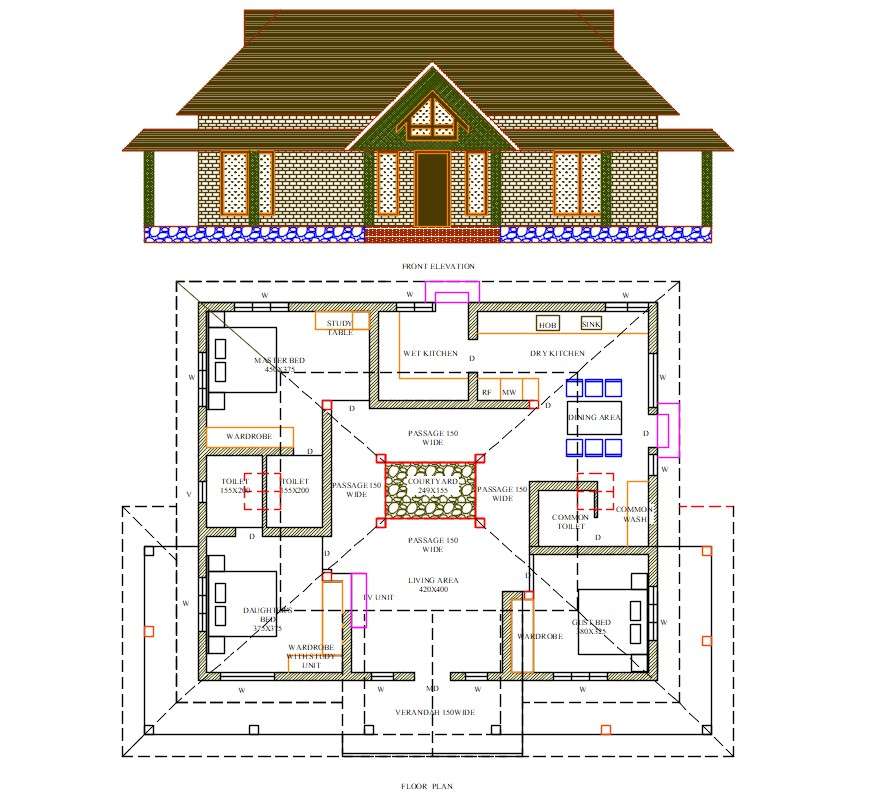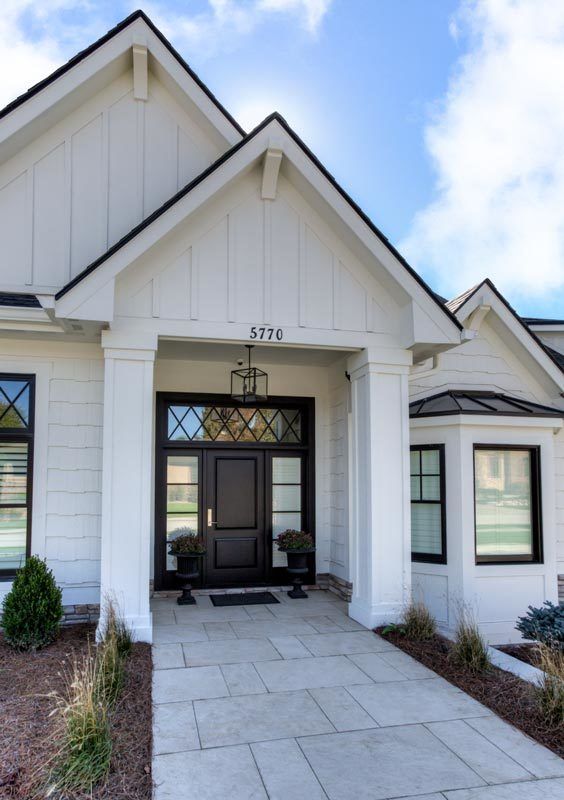
Brick is a great option if you want to replace your old siding with something stronger and more stylish than vinyl siding. Brick is fire-resistant and offers great insulation. It can also withstand any weather. Brick made of recycled material is also available. It will last for a lifetime and is therefore eco-friendly.
Brick doesn't have to be used only for rustic homes; it can also look great on all types of properties. This house uses a combination clapboard vinyl planks with red brick for the walls above the foundation. The front door has small, red-brick wisps that frame it.
To get started, you will need to remove the old vinyl siding. If the job seems too complex for you, you may need to hire a specialist in masonry. After the siding has been removed, you'll need to calculate the required brick. If you plan to replace the entire house, you'll need to budget around $7 to $15 per square foot of coverage. Depending on the materials used, you may need to add more money for labor.

No matter if you are replacing your vinyl siding by brick or another material, you will need new insulation and a waterproof barrier to stop moisture from getting through the windows and doors. Installing the brick yourself will require you to review the applicable building codes in your region. Architects can assist you in planning the brick patterns and making suggestions for the most efficient method of doing the job.
You'll also need to install mortar for attaching the bricks to the wall. Make sure you choose a water-based adhesive when choosing the right type of adhesive. A stronger adhesive could cause damage to the brick, rather than enhancing it. Regardless of the choice, you'll want to clean the brick surface with a suitable cleaning agent, such as bleach, to prevent the bleach from leaching into the brick.
Another great trick for bricks is to use a polyurethane glue to protect the new covering. A durable, long-lasting polyurethane adhesive can make a good investment. If you're unsure which product is best for your project, ask your local department of building to find out.
If you decide to do the brick-to–vinyl siding project yourself, you will need to know the dimensions of your home. If you live in a climate that is temperate, you should select a durable brick that can resist all elements. If you live in a cooler climate, however, you might want to consider using a different material.

Finally, you should check the gutters and downspouts regularly to ensure they are in good condition. If they are dirty, you might want to hire a professional to clean them for you. Then, you can check for any water pools or leaks on your siding.
FAQ
How do you make a house look new?
The following steps should be taken when renovating a house without any money:
-
Plan your budget
-
Find out what materials are required
-
Decide where to put them
-
Make a list.
-
Determine how much money you have
-
Plan your renovation project
-
Start to work on your plans
-
Do some research online
-
Ask your family and friends for assistance
-
Get creative!
Can I rent a dumpster?
A dumpster can be rented to dispose of your debris after you have completed your home renovation. Renting a dumpster is a great way to keep your yard free from trash and debris.
Which room should I renovate first?
The heart and soul of any home is the kitchen. It's where you spend most of your time eating, cooking, entertaining, and relaxing. Start looking for ways that you can make your kitchen functional and more attractive.
The bathroom is also an important part of any home. The bathroom provides privacy and comfort while you do everyday chores like brushing your teeth, shaving and bathing. This will make these rooms more functional and beautiful.
Is it better to hire either a general or subcontractor?
A general contractor will usually cost more than a subcontractor. General contractors have many employees so often charge their clients a high amount for labor costs. A subcontractor on the other side only employs one person, so he/she charges less per-hour.
Are you better off doing floors or walls?
It's important to know what you want to accomplish before you start any project. It is essential to consider how the space will be used, who will use it, and why. This will help you decide if you should go for flooring or wall coverings.
You can choose to put flooring in the first place if you decide to open up your kitchen/living space. You could also consider wall coverings for privacy if this is the space you are looking to create.
Statistics
- It is advisable, however, to have a contingency of 10–20 per cent to allow for the unexpected expenses that can arise when renovating older homes. (realhomes.com)
- ‘The potential added value of a loft conversion, which could create an extra bedroom and ensuite, could be as much as 20 per cent and 15 per cent for a garage conversion.' (realhomes.com)
- Most lenders will lend you up to 75% or 80% of the appraised value of your home, but some will go higher. (kiplinger.com)
- A final payment of, say, 5% to 10% will be due when the space is livable and usable (your contract probably will say "substantial completion"). (kiplinger.com)
- They'll usually lend up to 90% of your home's "as-completed" value, but no more than $424,100 in most locales or $636,150 in high-cost areas. (kiplinger.com)
External Links
How To
Five Things You Need to Know Before You Begin Your Home Renovation
-
This is a big undertaking. - If you're going to start a major home improvement project like renovating your kitchen, bathroom or even building a new house, there's no doubt that you'll need some help along the way. You might reconsider if you're not confident enough to handle such a huge task on your own. This could cost you a lot of money and time, and you may not get any real benefit from it. Instead, why not hire someone who knows what they're doing to help out? They'll save your time and make it easy for you to have a wonderful place to call home.
-
How much should a project cost? This one may seem obvious, however spending too much on renovation projects could make matters worse. The reason is because you'll probably find yourself having to pay back most of the costs at the end of the day. You should stick to your budget, even if it's a tight one. A lack of a budget could mean that you end up spending a fortune and getting nothing in return.
-
Do I choose to hire professionals or DIY? - There's no right or wrong answer here, but we'd recommend hiring professional tradespeople if you can afford them. They'll give you the best advice possible on how to proceed with your particular project. They will install the plumbing correctly, take care of safety, and offer a guarantee after they have finished their work. DIY projects require lots of trial and errors, which can mean you'll have many lessons to learn. There will be many problems along the way.
-
Are you able to afford it? - Don’t underestimate the cost associated with a home renovation. You might need to borrow money from family and friends to pay the bills. If you are planning on selling your existing property soon after finishing the renovations, it is important to include the cost of selling it in your calculations.
-
Where do I start? - When it comes to choosing where to start, there's no right or wrong place. But we suggest you choose something that you enjoy working on. That way, you'll be motivated to keep going, and you'll be less likely to procrastinate. You should also avoid areas that require extensive maintenance. You should avoid redecorating your living room if it is always covered in dirt and dust.